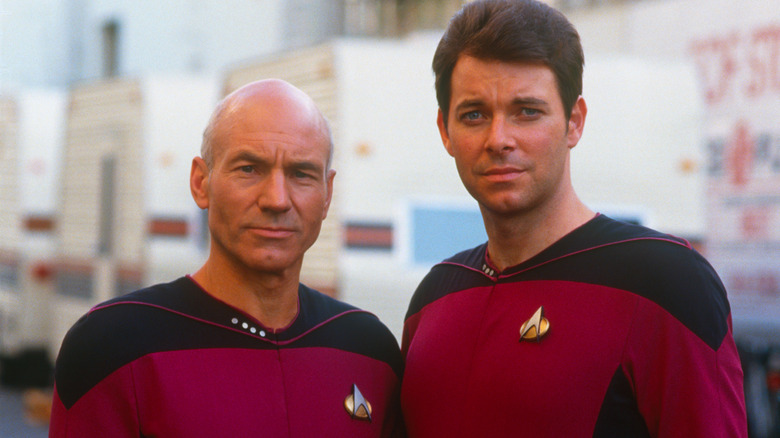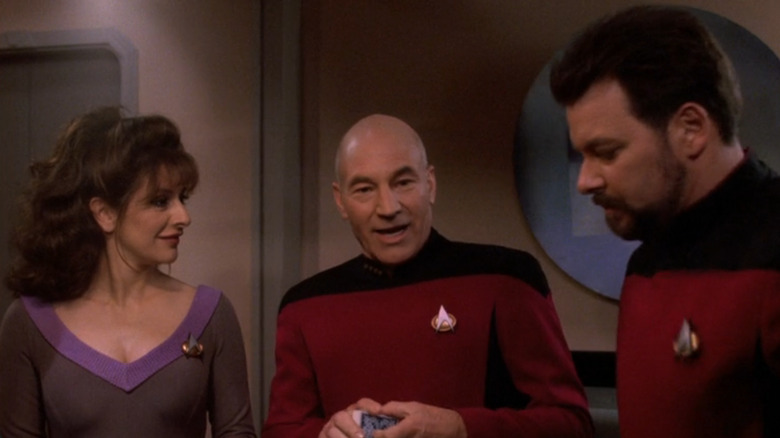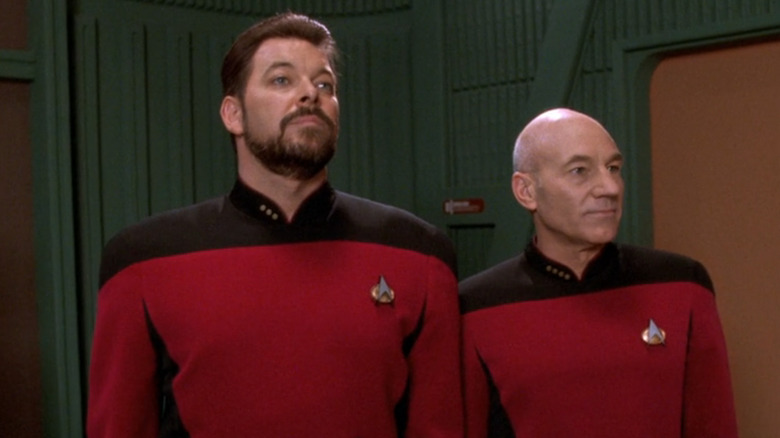The Reasons Star Trek: The Next Generation Ended After Season 7
As "Star Trek: The Next Generation" concluded its final episode in 1994, many fans were understandably disappointed and confused. Not only had the series been a massive hit, ranked alongside shows such as "Home Improvement" and "Seinfeld" in terms of viewership, but it was more profitable than most TV shows since Paramount sold it directly to stations instead of slotting it into prime-time.
But as The New York Times reported back then, Paramount wasn't focused solely on "The Next Generation." Even in the mid-1990s, franchises were a big deal in Hollywood and Paramount wasn't about to take its eye off the prize. As the adventures of Jean-Luc Picard (Patrick Stewart) wound down on the small screen, the studio angled to bring them to the big one. "Star Trek: Deep Space Nine" was launched, with "Star Trek: Voyager" close on the horizon.
There were also financial and network concerns. Although "The Next Generation" certainly had the potential to carry on for another few years, Paramount's overall strategy and rising budget costs, along with concerns about the size of the show's library in a pre-streaming era, led the studio to end the series in its prime.
Paramount wanted The Next Generation cast to be movie stars
When Paramount canceled "Star Trek: The Next Generation" after seven seasons, the future of the "Star Trek" franchise was, well, paramount. For years, the cast of "Star Trek: The Original Series," led by William Shatner and Leonard Nimoy, had been starring in feature films, but they were rapidly aging.
This would prove to be an enduring problem for "Star Trek," as cast members from its various shows remained celebrated decades after their television heydays. Even the very recent "Star Trek: Picard" felt a bit like a stage play put on by the residents of an assisted living facility. However, in 1994, the cast of "The Next Generation" was still made up of the young bucks of the franchise and Paramount wanted to start making movies with them at the helm. That meant freeing them up from their television obligations. Indeed, "Star Trek: Generations" debuted in 1994, officially passing the feature film torch from Shatner's James Kirk to Patrick Stewart's Jean-Luc Picard.
The crew of the Enterprise-E continued to star in "Star Trek" movies until "Star Trek: Nemesis" in 2002. Patrick Stewart quickly found his way into other iconic roles, such as portraying Charles Xavier in Fox's "X-Men" films beginning in 2000. But the cast of "The Next Generation" would reunite almost 20 years later for the series "Star Trek: Picard."
The Next Generation got increasingly expensive
Another, more byzantine reason for the cancellation of "Star Trek: The Next Generation" had to do with the way network television operated in the pre-streaming age. Paramount was selling the show directly to local stations, an unusual move but one that had paid off in spades. Yet the strategy could not last forever due to airtime limitations. As noted in the aforementioned New York Times piece, stations that bought the "Star Trek" show were required to buy rights to reruns and to air each episode as many as seven times. As the number of episodes grew with each season, stations that purchased "The Next Generation" would be filling ever more of their limited slots with old episodes, and there was no such thing as Netflix for them to offload all that content without time restrictions.
Moreover, profitability was on a downward trend because, as the series grew in size, stations were less willing to pay top dollar for new episodes. Meanwhile, the main cast of a long-running series traditionally had regular pay raises built into their contracts, and "The Next Generation" was no exception. In other words, the cast was getting paid more as the show made less money.
To this day, "The Next Generation" remains a high water mark for many "Star Trek" fans. It's enjoying a healthy second life on streaming and in syndication, where it continues to be appreciated by those the world over whose dreams boldly go where no one has gone before. And, although it concluded with some unresolved plotlines, many would agree that it ended at the right time.


